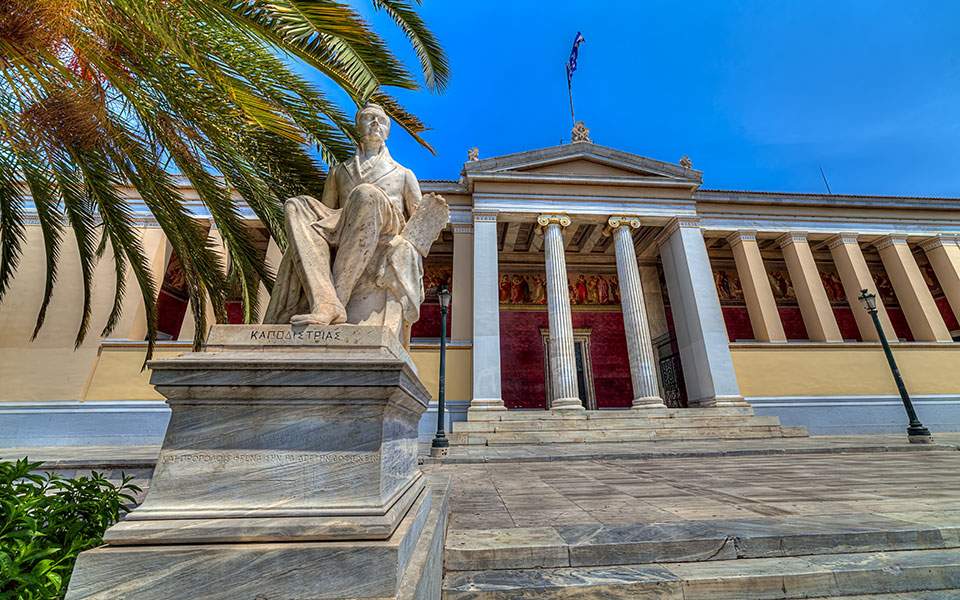Transatlantic bridge for Greek universities

The Education Ministry is setting up a transatlantic bridge for Greek universities. The ministry wants to see student exchanges between Greek and US institutions, attract foreign students to English-language programs and promote agreements between universities for joint programs.
Plans were discussed between Education Minister Niki Kerameus and officials from the US Bureau of Educational and Cultural Affairs in Athens on October 7. “We want to launch efforts for a strong Greek presence in the international educational environment,” Kerameus said, adding that an outward-looking approach was now becoming a reality.
During her recent visit to the United States, Kerameus held talks with Assistant Secretary of State for Educational and Cultural Affairs Marie Royce and representatives from American universities during which she presented the Greek government’s plan to enhance the international appeal of universities in Greece. The overture prompted the visit by the US delegation, which also wanted a meeting with Greek university deans.
“I also wanted a nod from [Greek] universities. What is required is excellent cooperation, good preparation and organizing the next steps,” Kerameus said.
The meeting between the two sides in Athens signaled the beginning of cooperation on areas that include joint study programs between Greek and American universities, the participation of foreign students in English-language full-time and summer programs in Greece, student and research exchanges, the expansion of the Fulbright Scholarship Program and Greece’s participation in the annual conference held by the Association of International Educators (NAFSA) which attracts tens of thousands of visitors from around the world. “There is a wide range of possibilities. It depends on what each university pursues,” Kerameus said.
Greek officials provided an overview of Greek universities to the American delegation before the university officials discussed cooperation in separate bilateral meetings. New programs must be prepared before the end of the current academic year. Greek universities would need to be fully prepared by June. One obvious concern is shortages in terms of student accommodation.
Meanwhile, many Greek universities have signed bilateral cooperation agreements. The University of Athens has 847 international agreements (Erasmus and bilateral agreements) with 450 universities from 65 countries. This winter semester the Aristotle University of Thessaloniki has 400 students from 25 European states (for studies and the European Union’s Erasmus+ program) and 11 countries outside the EU (Georgia, Jordan, China, Belarus, Moldova, Ukraine, Russia, Serbia, El Salvador, Brazil and Mexico).
However, ministry officials point out that Greece will have to overcome sclerotic thinking and distortions on an institutional level. Thessaloniki’s Aristotle University and the University of Delaware failed to reach an agreement as the country still lacks an institutional framework regarding the collection of tuition fees.
Greece is still a laggard and needs to take quick, concrete steps in this field. An overture by Greek universities would yield obvious academic and financial benefits.





